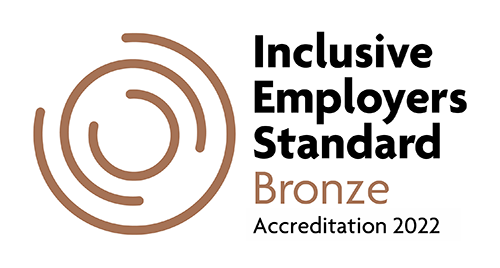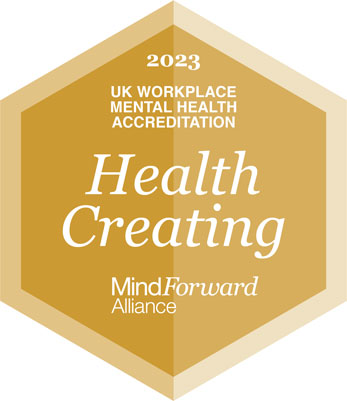People
As an employer, we value diversity, encourage inclusion and support staff wellbeing.
Diversity and inclusion go together
We’re working to create a workforce that reflects the diversity of the society we serve. And we think diversity and inclusion go hand-in-hand. So we’re also developing an inclusive workplace culture that allows people to be themselves at work and achieve their potential.
As part of his appointment as Governor, Andrew Bailey committed to leading an institution that is truly diverse. At the launch of the Meeting Varied People initiative in Spring 2021, Andrew highlighted that identity and cognitive diversity are equally important and that his desire to have an inclusive and open culture will mean people can speak up, ensuring we make better decisions.
We’re building a diverse workforce
Diversity targets
We want to reflect the society that we serve by increasing diversity at the Bank of England. By developing a set of targets, we are focusing on where progress is most needed.
Our aim is to address the female and minority ethnic underrepresentation in certain areas of the organisation. The targets we’ve set are designed to build pathways for appointing more minority ethnic and female senior managers, and to ensure our pipeline of talent is appropriately diverse.
We have also introduced specific targets to address the disproportionately low representation of Black people at the Bank of England - particularly at senior scales (including staff with Black heritage).
We have had representation targets in place for both women and minority ethnic colleagues since 2014. These were revised in 2020 following a review by our governing body in consultation with our Women in the Bank and Bank of England Ethnic Minority employee networks. Our new targets are set for end-February 2028 (with a review in 2025).
To support our progress towards the new targets, we are taking clear actions and have implemented internal governance to help us to keep on track and accountable. We publish our progress in our annual report.
Our progress towards our gender targets can be found below.
| Our targets by end-February 2028 |
Our current progress (February 2025) |
2028 Target (minimum) |
|---|---|---|
| 40%–44% of our senior managers to be female |
38% |
40 |
| 43% female representation in roles just below senior management |
40% |
43 |
|
Gender parity on new appointments at ED and Director level |
41%(1) |
Parity |
(1) Based on Executive Director and Director appointments made between 1 March 2021 and 29 February 2024.
Whilst our inclusion targets focus on gender equality and ethnicity, we’re also committed to the inclusion and support of all colleagues regardless of their characteristics or background. For our LGBTQ+ colleagues, as well as our colleagues with disabilities (visible and non-visible), we created our disability and sexual orientation and gender identity charters.
We publish an update on our progress towards our diversity targets in our annual report.






